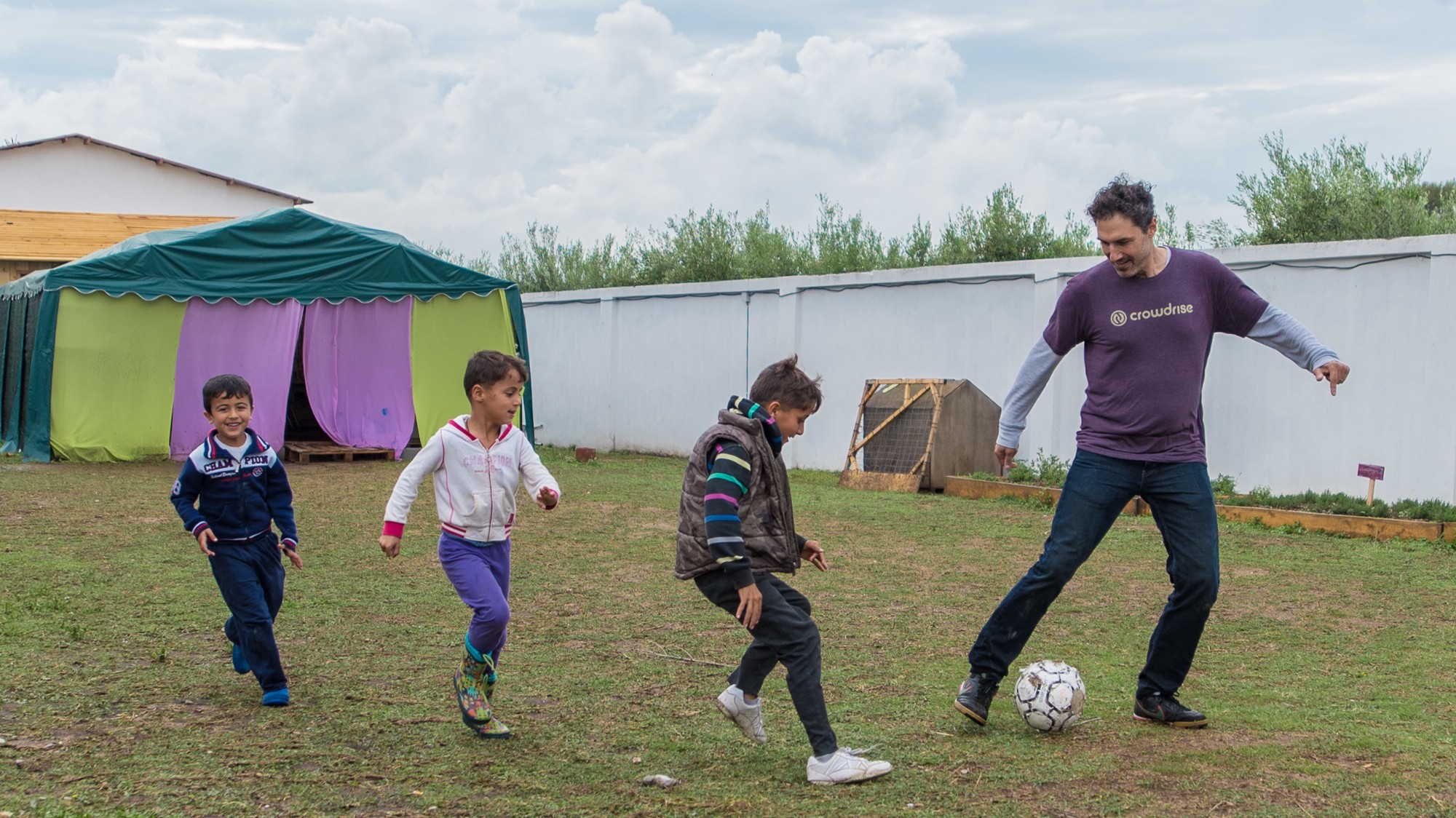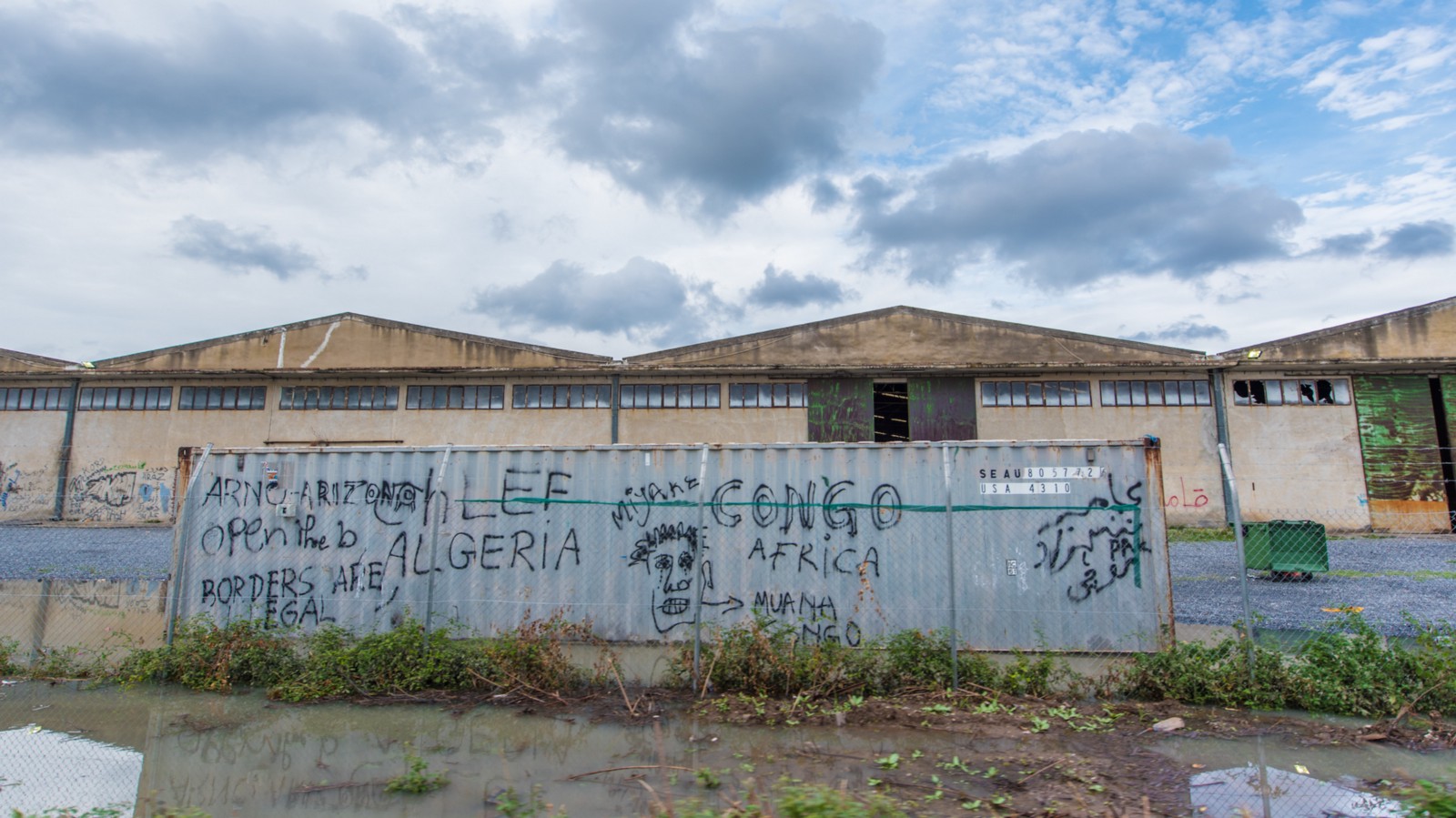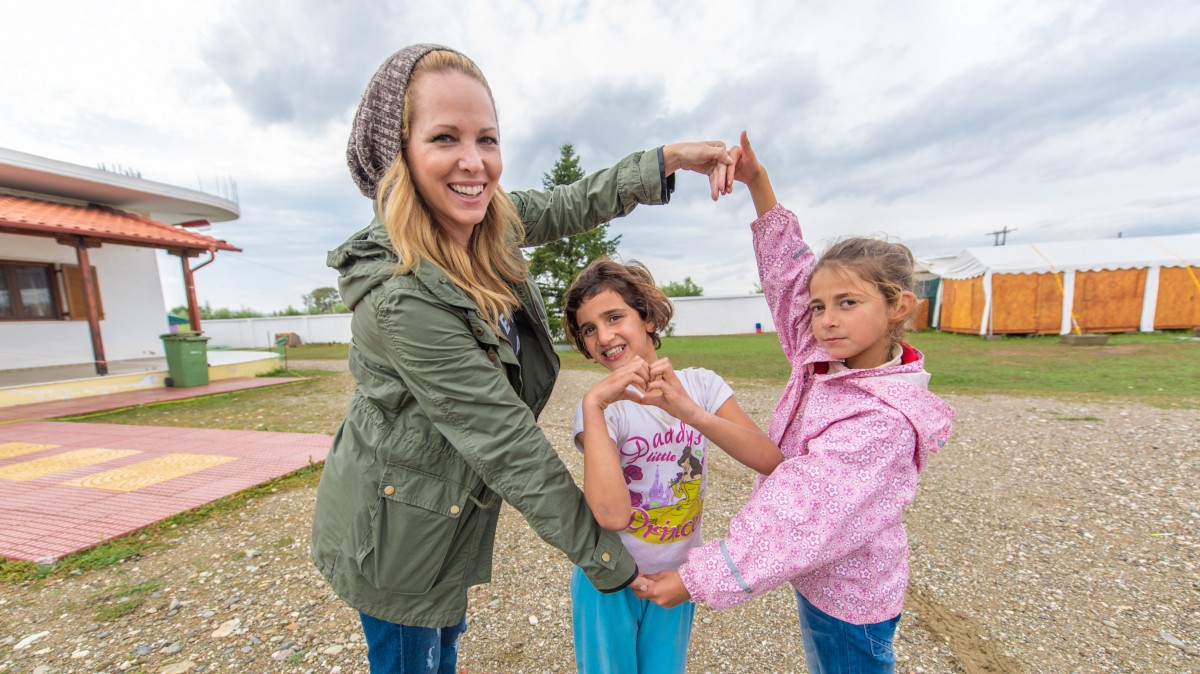That was the fun part; now I’m trying to help raise money for their schooling, clothes, food and other necessities

Like a lot of fans, I reach for soccer when I need a good metaphor to help me understand the hard things that life sometimes puts in our way. So when I visited the Vasilika refugee camp while on my honeymoon last week in Thessaloniki, Greece, I started to think about soccer. I couldn’t help it.
There are thousands of displaced Syrians living at Vasilika. They couldn’t stay in their country, but there’s nowhere else for them to go. So they’re here. And being with them got me thinking about the lines on the soccer field. The lines are there to position players at the start of a game, but once the referee blows the whistle, the players are free to roam wherever they want. This sense of freedom has always been one of my favorite things about the game—you can do almost anything you want almost anywhere on the field. Yes, there can be consequences for an ill-advised pass or dribble—and they are usually most embarrassing for goalkeepers, like me—but nobody is going to put you in jail or keep you in a foreign country. On the soccer field, there are lines you can cross but no borders preventing you from crossing them.
Let me back up and explain what I was doing at a refugee camp on my honeymoon. Since we got married in July, my wife Lisa and I had been contemplating what to do for a honeymoon, and eventually we decided to do a charitable honeymoon. (Soccer and aid work have been a big part of my life ever since I helped start the non-profit organization Grassroot Soccer.)
From the outside, the refugee camp actually kind of looks like a huge indoor soccer facility, the kind you see stationed in a warehouse on the outer city limits.
I contacted some friends at CrowdRise, who told me about their 24-Hour Impact Project. In this program, CrowdRise ambassadors are selected to find an important cause and raise enough funds in just 24 hours to make a change. They then spend the following 24 hours implementing that change. All activity is filmed in real time and video updates are posted so that donors can see the immediate result of their contributions. (Some examples: helping Las Vegas’s homeless community, a group of students in Cambodia, the endangered Greater Bamboo Lemur in Madagascar, and even an entire village in Ethiopia). Lisa and I decided to join the 24-Hour Impact Project and chose as our goal to help improve the lives of the 1,200 people living in the Vasilika refugee camp.
Since winning Survivor and surviving a rare form of cancer, I have focused my life on helping to make happiness real for others. I have been fortunate to travel the world and immerse myself in many different humanitarian efforts. But nothing could have prepared us to meet hundreds of families who had fled their home country and crossed several borders in search of a better life. Due to politics out of their control, they now remain stranded in a country that is not their own.
Being There
From the outside, the refugee camp actually kind of looks like a huge indoor soccer facility, the kind you see stationed in a warehouse on the outer city limits. As we got closer, things started to change and I couldn’t believe what I was seeing. It was more like six giant abandoned warehouses, converted into barracks, positioned back to back to back. A barbed wire fence surrounds the structure and a muddy dirt road leads to a small entrance, guarded by armed Greek police. Inside there are rows and rows of canvas tents with rusty old cots. No heat. Outhouses. Food is scarce and mostly consists of packaged bread and apples. It’s horrible situation made worse by the never-ending rain and fast approaching winter.

Legally, we aren’t allowed inside the camp, but a young girl named Helena snuck us in through hole in the barbed wire fence. The idea of going to jail wasn’t on our itinerary, but Helena wanted us to meet her family, so we made our way to Helena’s tent and waited outside while she surprised her mother with her new American friends. We stepped out of our shoes and went inside. Her mother was under the covers on one of the four cots along the walls of the tent. She got up, coughed a deep cough, and pointed to her throat. We gave her some lozenges, but she put them aside while she spoke with through Helena’s translation. When it was time to go, her mother asked us to take Helena back with us to America. It was heartbreaking, but it’s the reality of the refugee crisis.

But there have been some bright spots, too. Next door to the camp is a safe-haven for the kids called the Eko Project. A group of volunteers from Spain built a school, library, play space, and kitchen that serves fresh, healthy, and warm food. The kids run around and play soccer every day. They are adorable. And they’ve been through a lot of trauma. Behind their smiles and step-overs, there is definitely more pain than you can heal in 24 hours. But I was here. I wanted to try to connect with these kids. And I’m not the worst soccer player in the world, so I started kicking the ball.
Speaking in Soccer
I’m not the worst, but I’m no Leo Messi. That’s probably why, as I was meeting refugees of all ages, from different countries, speaking different languages, they all laughed when I started calling myself Messi. A ridiculous brag needs no translation. And if you want people to feel comfortable with you, it’s a pretty good opening line.
Simply arriving with a soccer ball granted us instant access into the community, broke down cultural stereotypes, and brought people together.
We were quickly surrounded by kids. Which meant that it was time to organize a game. The first team to hit the post wins. My team consisted of an American-Jewish soccer guy (me), an Iraqi war vet named Aras, and a Syrian truck driver. We squared off against a Turkish professor, a Spanish volunteer, and a Palestinian shop owner. Filling out the roster was Helena, her little sister Elene, Slava and her sister Sidra, and the boys: four Mohammeds and 25 other kids swarming around us frantically trying to get a touch on the ball.
Aras, the four Mohammeds and I worked together like a machine, gunning crisp passes around our opponents. Aras was calmly smoking a cigarette and nut-megging the kids at the same time. He told me that he didn’t smoke in Iraq, but the stress and boredom in Vasilika got him hooked.
David, the Spanish volunteer managing the Eko Project, blasted a shot off Helena’s knee. It ricocheted into the cinder block goalpost and the game was quickly settled. The kids cheered and the older folks were happy to stop running. I can’t say that playing with these kids helped them forget the reality of their situation, but I can say that this bright, brief moment with them did make them smile and help them feel free, even if it lasted just for a minute.
The Bigger Picture
Even though we couldn’t speak the same language, we could all communicate, have fun, and share an incredible moment. Simply arriving with a soccer ball (we are so lucky to have the support of the amazing One World Play Project, which donated 40 balls) granted us instant access into the community, broke down cultural stereotypes, and brought people together. That’s what a ball has the power to do.
We’ve heard about refugees all over the news, but being here really drives home how difficult daily life is for the people living here. These are innocent people who are desperately seeking the basics of a stable life: shelter, food, and medical care. Lisa and I had seen refugees on the news, but now some of them are our friends. And this is just a small sample of the people we’ve met, the stories we’ve heard, the tough things we’ve seen.
This is why we’re doing the 24-Hour Impact Project to raise awareness and funds to keep the Eko Project and this soccer program thriving. We now need your help to reach our goal of raising $20,000 to assist these amazing people while they’re here — all through the power and universality of soccer.
https://www.crowdrise.com/86402-seconds-in-greece

After playing professional soccer in the U.S. and Zimbabwe, Ethan Zohn went on to win the CBS reality show Survivor Africa. He used his prize money to co-found the organization Grassroot Soccer (GRS), which uses the power of soccer and the energy of youth to educate, inspire and mobilize communities to improve health. Ethan is currently the host of The New England Revolution Post Game Live on Comcast Sports Net.
